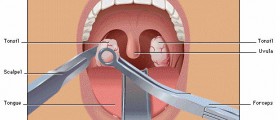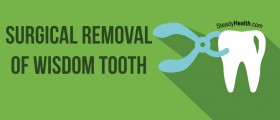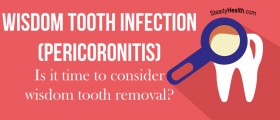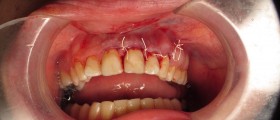
A tonsilectomy is a surgical procedure to remove the tonsils. The tonsils are a pair of lymphoid organs that you usually will not even notice, but they have an important function as a part of the immune system. The tonsils help keep any infections that affect the mouth from spreading to the lungs and other parts of the body. However, sometimes the tonsils create more problems than good, and they need to be removed.
Tonsillitis and tonsillectomy
Tonsillitis is an infection or an inflammation of the tonsils and it is particularly common during childhood, when the tonsils are larger. The symptoms of tonsillitis include a sore throat, swollen and painful tonsils, possibly with white patches on them. The swelling causes difficulty in swallowing, which leads to a loss of appetite or a fear of eating in the patient. A person who has tonsillitis will most likely feel tired and worn down and he or she will probably have a fever as well.
Tonsillitis is usually treated with a course of antibiotics, which almost always cures the infection completely. However, in some people tonsillitis tends to reoccur, sometimes three or four times per season. It becomes more difficult to treat it with antibiotics and in that case most doctors recommend the surgical removal of tonsils, in a procedure called a tonsillectomy.
Tonsillectomy is a routine procedure that can be done under general anesthetic or with the use of a local anesthetic and the appropriate sedatives. Children seem to recover from this surgery much faster than adults, who may take several weeks to return to their normal activities and eating habits.
Bad breath after tonsillectomy
Bad breath, medically called hallitosis, is actually associated with infected tonsils and disease processes that go on inside the mouth. The problem of bad breath is cured as soon as the tonsils are removed, if the problem originated in the tonsils. However, in some cases bad breath occurs after a tonsillectomy, along with other side effects of the surgery, such as fever and earache. Bad breath is probably the result of tonsillar plaque and tonsillar fluids that linger in the area after the tonsils are excised, and which become "freed up" as the surgery cleared the tonsils.
Another reason for bad breath after a tonsillectomy can be the fact that the back of the mouth is in the process of healing from a surgery. Of course, there is also one other obvious reason — a person cannot eat normally or brush the teeth normally for several days after the tonsillectomy, which inevitably leads to bad breath caused by poor oral hygiene. In addition, if the problem persists, patients will have to explore the option that bad breath has another, unrelated, cause, such as gum disease or tooth decay.
Bad breath after a tonsillectomy is a almost always a temporary problem that will go away as soon as the healing process is complete. It can help to gargle with a saline solution twice a day. If your bad breath still persists after two weeks, it is best to see a doctor to examine the possible causes.

















Your thoughts on this
Loading...